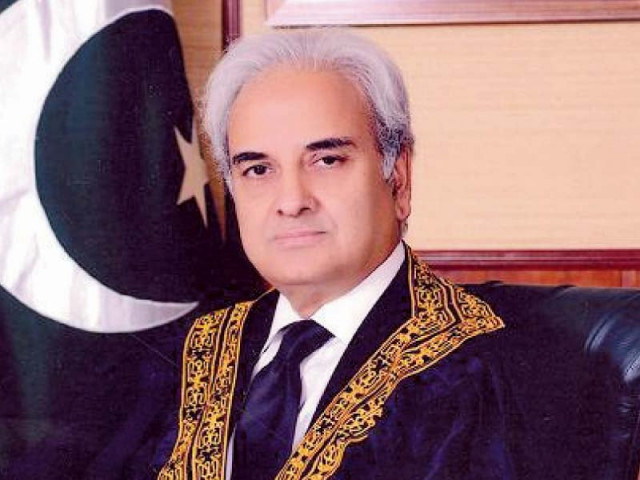Judicial body expected to reappoint two sacked judges
The commission will also consider the confirmation of eight additional judges, whose tenure will expire on August 31

CJP Nasirul Mulk. PHOTO: FILE
Two former judges of the Sindh High Court are expected to be reappointed at the July 31 meeting of the Judicial Commission of Pakistan some six years after they were removed by the country’s apex court.
Sources revealed to The Express Tribune that the chief justice has summoned a meeting of the JCP in Karachi on July 31 — likely to be the last JCP meeting that Chief Justice of Pakistan Nasirul Mulk presides over — to consider the appointment of 10 additional judges of the Sindh High Court. The commission will also consider the confirmation of eight additional judges, whose tenure will expire on August 31.
Sources said that SHC Chief Justice Faisal Arab has proposed the names of six lawyers and four district and sessions judges for appointment. The current strength of the Sindh High Court stands at 40. Some 26 judges are currently performing their duties.
Justice Arab has also initiated the names of two sacked judges namely K K Agha and Sheikh Khadim Hussain. Both men spent a short stint as SHC judges before they were removed by the apex court on July 31, 2009. They were appointed on the recommendation of ‘de facto’ chief justice Abdul Hameed Dogar.
Their reappointment is part of the broader effort to reconsider judges who were competent, honest and had taken oath under the restored Constitution. More than 100 judges were ousted due to the SC’s July 2009 ruling. Former chief justice Iftikhar Muhammad Chaudhry did not consider their reappointment during his four-year tenure.
Sources say this will be the second time that the reappointment of K.K Agha has been reconsidered. In April, 2014 Agha’s name was recommended by SHC Chief Justice (CJ) Maqbool Baqir for the position of an additional judge to the Judicial Commission of Pakistan (JCP). However, the process was deferred when the commission learnt that Agha possessed British nationality. Later, Agha refused to relinquish his foreign nationality for the post because there was no legal restriction on holding dual nationality. He saw no reason to renounce it.
There is no constitutional provision that prohibits a dual national from assuming top judicial positions. Lawmakers, however, have repeatedly demanded legislation to prevent dual nationals from becoming a judge. They have called for the names of those holding dual citizenship to be made public.
A member of the JCP says that while there is no legal bar, the superior judiciary principally has decided that dual national lawyers will not be appointed as SC judges.
Published in The Express Tribune, July 26th, 2015.


















COMMENTS
Comments are moderated and generally will be posted if they are on-topic and not abusive.
For more information, please see our Comments FAQ